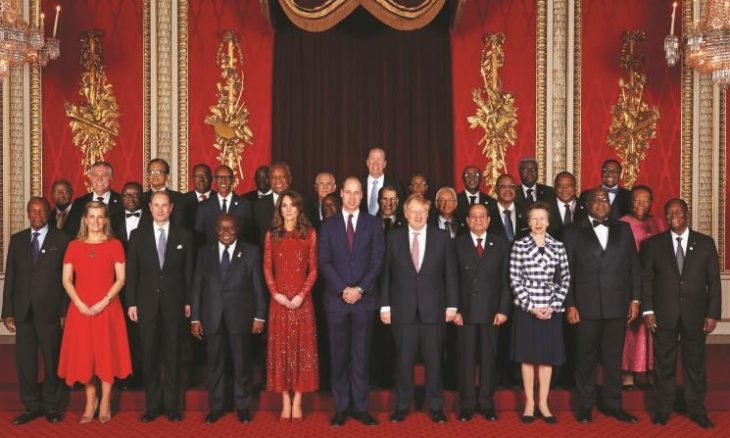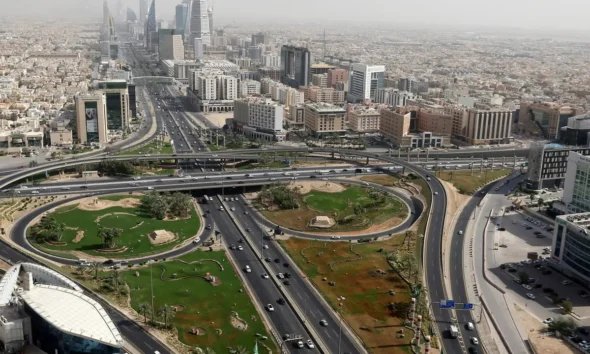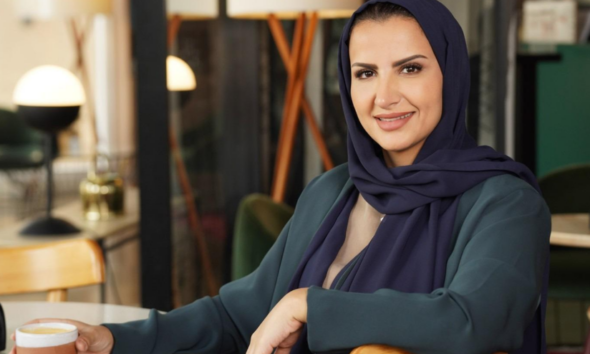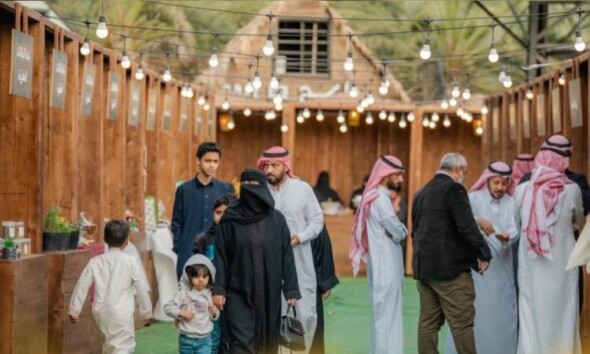Home » Business » Brexit: “from a secondary to a major partner for the Maghreb region” Britain’s transition challenges
Business
Brexit: “from a secondary to a major partner for the Maghreb region” Britain’s transition challenges
Published
4 years agoon
By
Huda Az
London “Al-Quds Al-Arabi”: Britain officially left the European Union on January 1, 2021, after joining it on January 1, 1973.
Analysts focus and the attention is drawn to Britain and the European Union relationship quality, but London has a project towards the world using the strength of its economy, its veto in the Security Council and its history that made it the country with the most global decision making in the last three centuries. Among the areas that the British are interested in and which concerns some European countries is the Maghreb-Amazigh region, especially Morocco and Algeria.
Britain’s relationship with North Africa, including Morocco, is historically strange since major countries used to control neighboring countries and regions during their expansion process, as they make use of historical weakness periods and colonize their closest neighbors or impose their conditions.
When Britain began to think about global trade, it established” Barbary Company” its first international company called in 1585 during the rule of Elizabeth I for trade exchange with Morocco, and the Queen appointed her minister, Robert, residing in Morocco at the time, to develop the mutual relations.
These relations did not develop despite the British step, and this is due to historical factors; including Britain’s preoccupation with its new colonies in the American continent which is rich in resources and without resistance. Then Morocco focused on expansion towards the south and the apprehension of the European powers that at that time began to colonize a number of Moroccan coastal points by Spain and Portugal. The “Barbary Company” establishment was one of Britain’s attempts to co-opt Morocco for its policy, and had it happened and Morocco accepted London’s offers, part of European history would have changed relatively.
Among these attempts in 1212 was King John of Britain requesting military assistance from the Moroccan Sultan Muhammad Nasser of the Almohad dynasty to confront and besiege France, and British kings also requested Moroccan assistance to besiege Spain in the 14th and 15th centuries. The Moroccan sultans hesitated to open up to the British at the time fearing negative repercussions for any alliance process such as the Spanish retaliation, especially, since Spain was at the time within a world power.
It can be deduced from history data that Britain was very careful not to fall early into European colonialism due to the importance of the Strait of Gibraltar as a sea passage, especially after it controlled the Rock of Gibraltar. Had it not been for Britain’s approval of France’s colonization of Morocco, Morocco would not have fallen under colonialism and among London’s conditions was handing northern Morocco over to Spain so that Paris would not control the Strait of Gibraltar.
Failure after the of Maghreb countries independence
There was a belief that after the colonial countries’ liberation from colonial powers domination” in this case Morocco, Algeria, Tunisia, and later Mauritania” to develop relations with European countries that did not colonize them such as Germany and Britain instead of France. This development did not take place and despite feelings of hostility and estrangement emergence from time to time, North African countries remained closely linked to France, except from Libya, which was not subject to French colonialism but Italian, and its president, Muammar Gaddafi, tried to build international relations with the socialist camp.
This historical connection of the Maghreb with the former colonial power made London always believe in the necessity of respecting France’s sphere of influence. The major powers respected this rule, which indirectly included within “Yalta Summit” perceptions at the end of World War II.
From globalization to Brexit
After globalization, belief prevailed once again that the Maghreb Arab states might go to diversify their economic partners, and France prevailed with the competition start with other countries such as Spain, Italy and China, not including Britain, which continued to occupy a secondary position as a partner without being a major partner.
Now, Britain is going through a new phase in its history: leaving the European Union. Perhaps the most realistic definition of Brexit is “Britain’s liberation in its national and international decision-making from European restrictions.” When it comes to diplomacy, this translates into a practical foreign policy approach devoid of the agreements signed by the European Union with these countries. In this regard, the British diplomatic strategy reports with great interest in strengthening relations with the countries of the Commonwealth, forming new relations with European partners and developing relations with major countries with which relations have remained unconvincing for decades.
In this last category, the Maghreb region enters and Britain lacks three basic elements to achieve true openness to its non-European neighbors located in the south which are: human factor, language communication weakness including “the cultural”, and the weak political relations.
The human element plays a major role in bilateral relations development of. France has taken the lead in trade and investment exchanges with the countries of the Maghreb due to a strong human exchange for decades reflected in immigration in the sense of residency, student scholarships, and tourism.
Britain is at the top of the major European countries that have a weak Maghreb community ten times less compared to France, Italy, Spain, Germany, and even countries with limited population density such as the Netherlands and Belgium.
Perhaps what is interesting is that the rise of the Maghreb community in Britain during the last ten years is due to the of Maghreb citizens who have European citizenship immigration to Britain.
The second component is reflected in the cultural exchange weakness, especially students; It is inconceivable that a country with a great cultural power like Britain and its famous universities does not attract Maghreb students! as some large and medium British universities do not have any student from this region and the majority of Maghreb students in European universities are European immigrants coming from France, Italy, Spain children and recently of the Maghreb people who reside in the Gulf countries. This is due to the English language weakness in the Arab Maghreb region despite the efforts of the countries of the region to raise it to become a competition with the French and the British University’s lack of openness to this region.
While the third factor is the British diplomatic relations and investment weakness. Ironically, during the last twenty years, no British prime minister has visited Morocco despite the geographical proximity and the two countries’ monarchy regime. One prime minister visited Algeria for the last sixty years and he was David Cameron in 2013, and then one visit to Tunisia because of the terrorist operation that targeted the British years ago.
Algeria is the Maghreb country that has wagered a lot on Britain since 2000, including the visit of President Abdelaziz Bouteflika to London in 2006 and is working to convert English into a major language in addition to French.
There is an important element in Britain’s interest in developing its relations with the region” absence of historical feuds between them and the Arab Maghreb” because it was not a colonial power except for its colonization of Tangiers for a specific period in the seventeenth century, in contrast to the tense relations between Algeria and Morocco with France and Spain.
Is Brexit a turning point?
After its withdrawal from the European Union, Britain announced interest in the Maghreb region and began implementing steps including strengthening commerce chambers in the countries of the region, opening government schools affiliated with them “such as the case of Morocco”, and showing British investors this region’s importance” with the exception of Europe” which is closer to Britain but the farthest culturally and economically.
In the coming years, this effort may translate into sensed results. France and Spain began to monitor British interest in the region, as Paris realized that its interest in Anglo-Saxon Africa would be matched by London’s interest in Francophone Africa, especially the Maghreb.
All indications indicate that London needs at least three decades to develop strong relations with the Maghreb in order to move from a secondary to a major partner. And all of depends on paying attention to the human element, such as increasing immigrants and students’ percentage, as historical experiences have shown that the human element is the pillar of every strategic relationship. Success will translate into the value of trade exchanges, investments, diplomatic visits, and the of Maghreb student’s percentage graduating from British universities.
In November 2012, former Prime Minister David Cameron about the financial and business district said that there are countries and markets that have not yet received our great attention, and we must open to them and give them attention including Morocco, Algeria and Tunisia. After that speech eight years ago, exchanges with each country have not exceeded 2 billion euros “about a fifth of the exchange with other countries such as Spain and France”, because London have not taken steps worthy of mention. Would it be serious about developing relations with the region after Brexit?

Dr. Hassan Al-Nemi: Politicians’ Choices Have Power, and so Do the Words of Intellectuals!

Wael Habbal: The Soul’s Voice is its Mirror, and Only the Proper Means can Bring out its Purity and Magnificence!

Non-Oil Sectors KSA will Depend on to Diversify from Oil by 2025

Reem Garash: A Pioneer in Saudi Hospitality

Our Winter is Rural: The Saudi Countryside Becomes a Yearly Success Story







